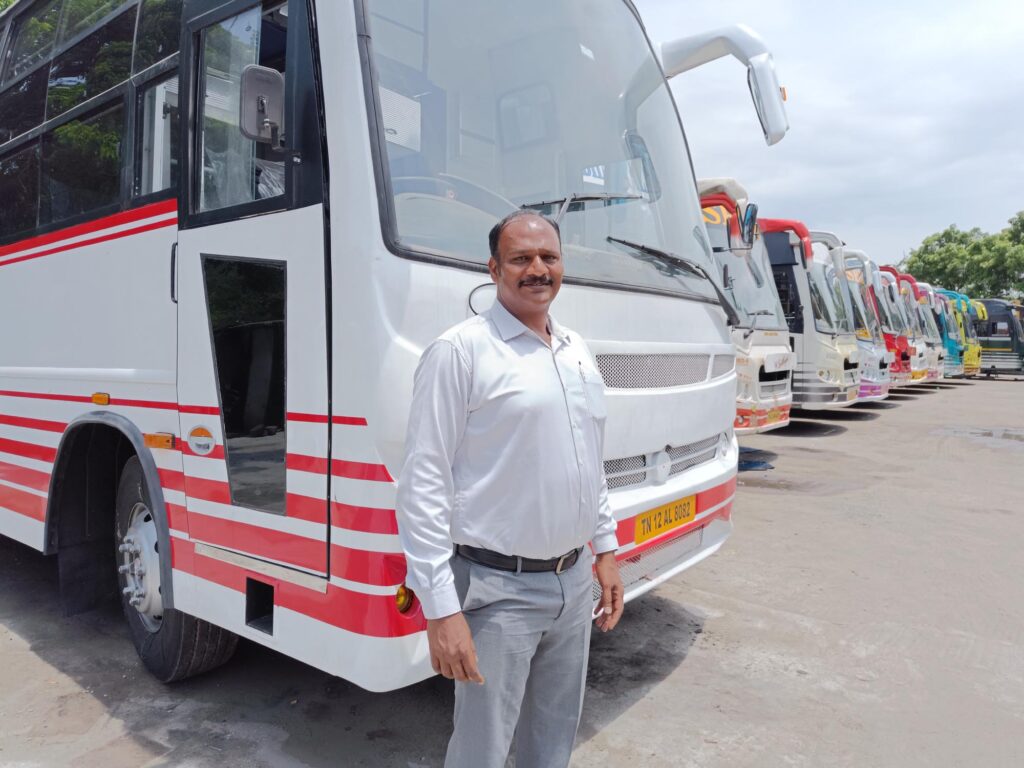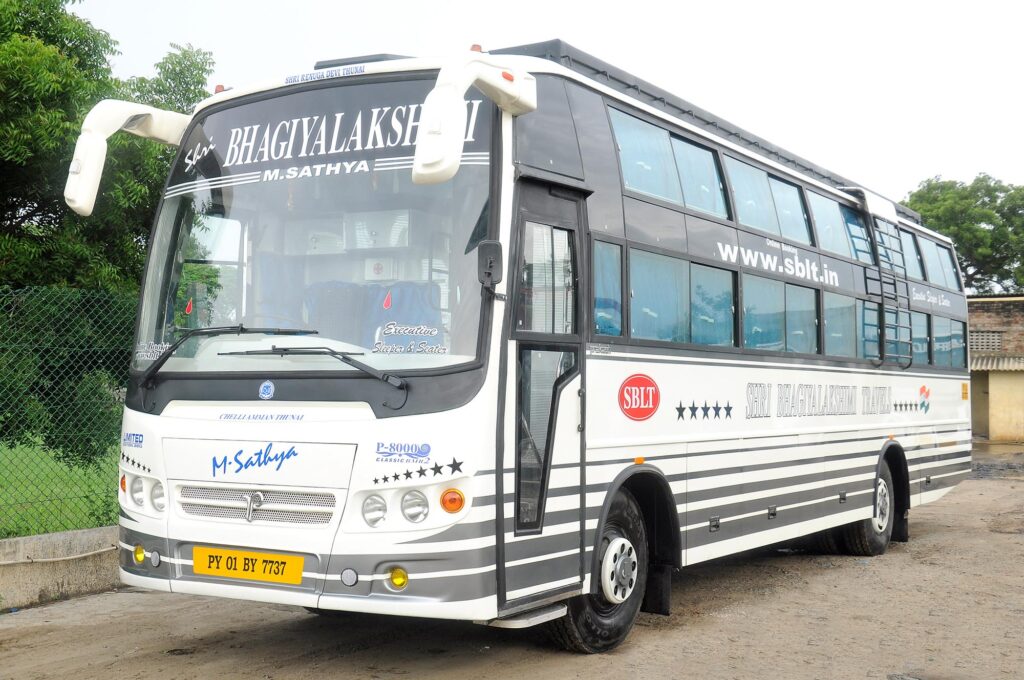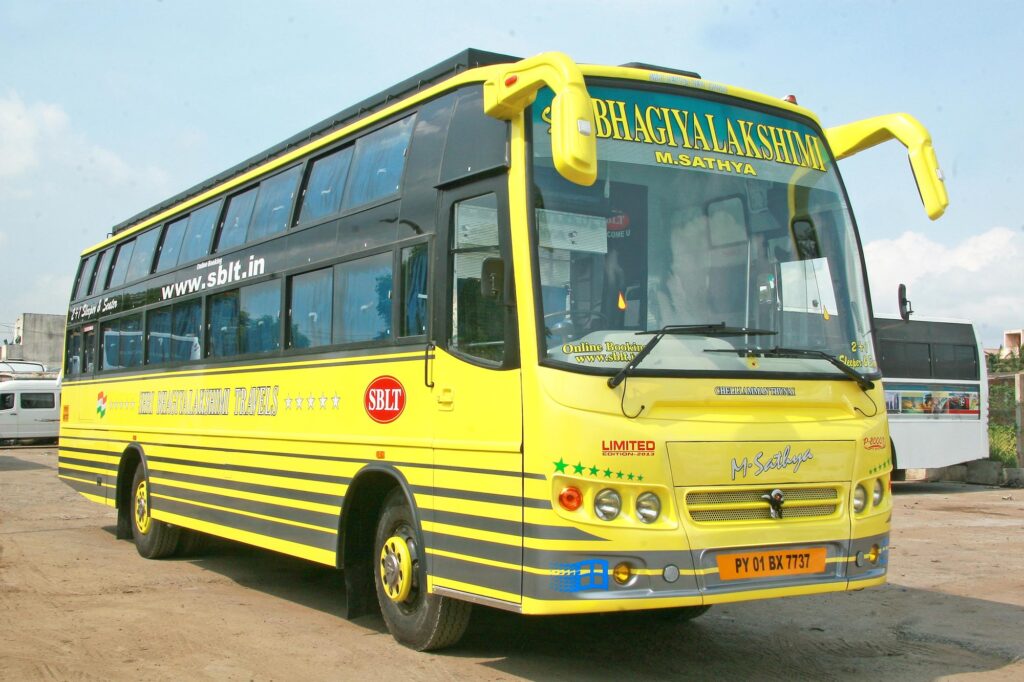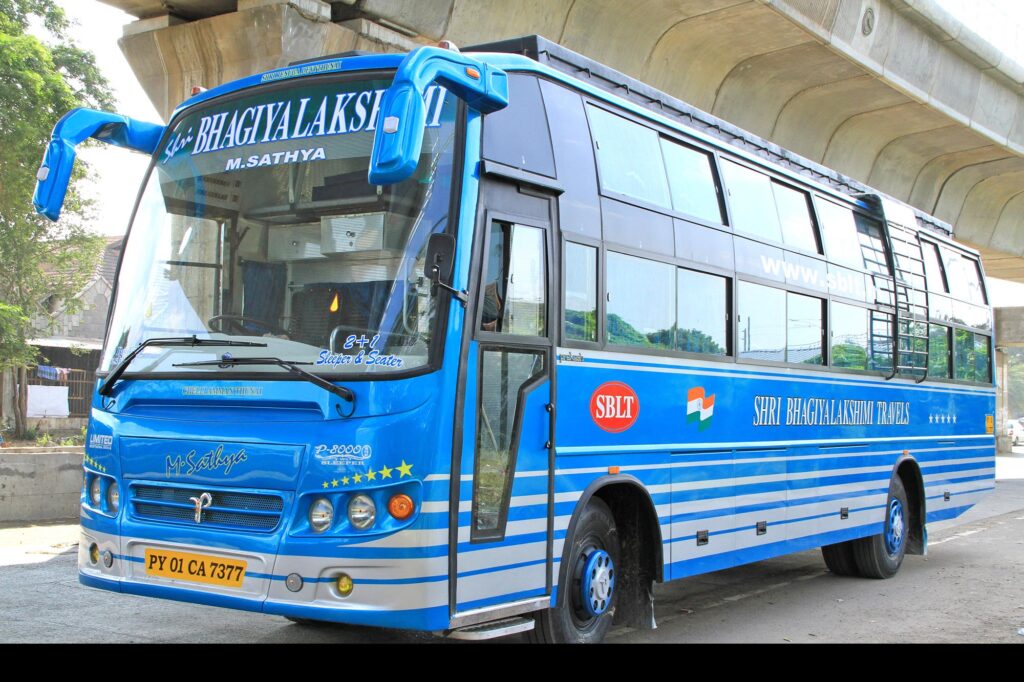
From a quiet town in the early 70s in Arcot, Vellore, G. Dayalan embarked on his career as a driver and eventually came to Chennai in search of greener pastures. He started his career by driving taxi, lorry, bus and then he bought hir first bus. This marked the beginning of his journey as a bus operator in 1989, laying the foundation for what would later become a highly successful brand in the travel industry, Sri Bhagyalakshmi Travels (SBLT). In this interview with M. Stephen, D. Maran, Managing Director of SBLT, shares the company’s growth story, success, challenges, and future endeavors.
Can you tell us about the inception of SBLT and how your growth journey has been so far?
Our company, Sri Bhagyalakshmi Travels (SBLT), was established in 1989 by my father, G. Dayalan, who hails from Arcot district in Vellore, Tamil Nadu. He initially worked as a taxi driver in Chennai and later drove lorries from 1973 to 1981. However, due to losses in the lorry business, he returned to working as a lorry driver before transitioning to driving tourist buses in 1981. In 1989, my father purchased his first omnibus and set up his own office in Kellys Purasawalkam, Chennai. From there, the business started to grow steadily, and in 1991-92, we entered the corporate travel sector. Over the years, we expanded our fleet from a single bus to two, four, and then ten buses. Today, all my brothers and I are involved in various aspects of the SBLT business, and the fleet capacity has reached an impressive 1,200 buses.



Can you provide some details about your fleet, including the number and types of vehicles you operate?
Our fleet is diverse and includes approximately 600 to 700 Ashok Leyland buses, 100 Tata buses, 200 Tempo Travellers, around 200 cars and Xylo vehicles, with a total of around 1,200 vehicles. We cater to various segments with buses suitable for small, medium, and large groups.
How did you decide to tap into the corporate and staff travel segment?
We initially started with tourist buses in 1989 and later expanded into intercity buses. Our first opportunity in the corporate travel segment came when we received an order from an ISI-certified company for employee transportation on a contract basis. This led to more orders from companies like EID, Parrys, MRL, SPIC, TPL, MPL, and Manali Petrochemicals. The entry of multinational companies in India after the year 2000 due to Foreign Direct Investment opened more opportunities for us.
Which industry segments do you cater to primarily?
We primarily provide employee transportation services to the manufacturing sector. Our services are utilized by companies such as BMW, Caterpillar, Foxconn, Salcomp, Coca Cola, and many others. Currently, we operate for 60 to 70 companies, with a significant focus on multinational corporations.
How does SBLT leverage technology in its operations?
SBLT adopted technology early on and started using GPS, CCTV cameras, and an online ticket booking system in 2007. Our sales are now 100% online, and for the past five years, we have conducted all transactions through online platforms. We utilize various tools, including Android and IOC apps, to streamline our operations effectively.
SBLT is known for its success in the corporate staff transport segment. What sets your brand apart and makes it successful in this space?
For the past decade, corporate companies have issued Request for Quotation (RFQ) based on standard specifications. They outline specific requirements such as vehicle type, preferred OEM, dimensions, seatbelt availability, punctuality, vehicle cleanliness, maintenance, timely pickup and drop, reduced breakdowns, driver discipline, safe driving practices, number of trips, driver regularity, and staff behaviour. Corporates provide us with Key Performance Index (KPI) reports, and our performance is evaluated based on these parameters. To stand out in this segment, SBLT strives to meet and exceed these standards consistently.
What regions do you serve, and which states and cities do you operate in?
SBLT primarily operates in Tamil Nadu and Andhra Pradesh. In Andhra Pradesh, we serve cities like Tada, Nellore, Tirupati, Vijayawada, and Vyzag. On average, our buses cover a distance of two lakh kilometers per day, totalling 60 lakh kilometers per month. Each day, we transport one lakh passengers.
As a fleet owner and operator, what are the top two challenges you face in your business, and how do you overcome them?
The first major challenge is the constantly changing government policies. To address this, we remain adaptable and embrace policy changes as they occur. The second challenge is the increasing competition in the industry. With thin profit margins, the competition has become fierce over the years. Our experience in the field helps us navigate these challenges successfully. Additionally, managing manpower and finding skilled workers remain a crucial aspect of our operations, as technology adoption has led to a reduced interest in manual labour.
The National Permit has significantly impacted bus operators and fleet owners. What are your thoughts on this move and its effect on your business?
The National Permit, particularly the “One India, One Permit” policy introduced by the government, has been a game-changer for our industry. It is a secure and advantageous permit system that benefits the government, operators, and passengers. Obtaining permits for business has become more efficient and cost-effective, enabling us to save substantial amounts of money.
With such a large fleet, there must be extensive planning involved for round-the-clock operations. Can you shed light on the logistics and how you ensure smooth operations?
The key to managing a large fleet is having a well-structured organization. We have various divisions, including operational, maintenance, sales, supervisory, and support departments. Each division has sub-departments, and we have site supervisors for each company. In addition to manpower, we utilize software and technology to handle operations efficiently and maintain records accurately.
What are your medium- and long-term plans for expanding the company further?
Our expansion plans are based on the opportunities that come our way and our proactive efforts to seek new opportunities. There are no limitations to our growth, and we aim to keep expanding steadily. Currently, we have a plan to purchase 800 more buses and take our fleet strength past 2,000 over the next five years. Growth will be steady and based on our ability to secure business opportunities.
Running this business has been rewarding, just like any other business. Challenges are a part of every venture, and we embrace them with a positive mindset, considering them as opportunities to grow. We take pride in the fact that our company has provided livelihoods for nearly 2,000 employees and their families. This gives us immense happiness, and we are committed to maintaining a successful and reputable business for the benefit of all stakeholders in the industry.